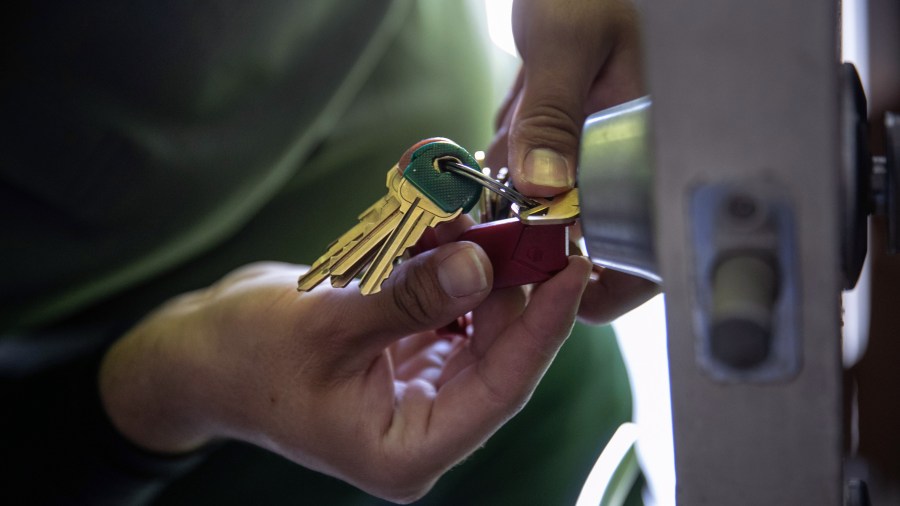Virtual eviction hearings can make horrible situations even worse

Millions of Americans remain unemployed in this pandemic and can’t pay their rent, so people are being evicted all over the country. Eviction hearings have moved to Zoom or Webex or even the phone, in an attempt to limit the spread of COVID-19 in courtrooms.
But some tenant’s rights advocates say the virtual hearings violate people’s rights. There aren’t procedures in place for people who don’t have broadband access, and translators that would be required in court aren’t required online. I spoke with Eileen Guo, a senior reporter on tech policy, ethics and social issues at MIT Technology Review. She’s been reporting on this and described a hearing she virtually attended in Jackson County, Missouri. The following is an edited transcript of our conversation.
Eileen Guo: I listened in on a hearing where the person was evicted, and she was being evicted by phone. The lawyer for the landlord was appearing by video and the judge was by video, and her call and her hearing was interrupted three times because the call was dropped. She was trying to present evidence, so paper documents that no one could see. And on the other hand, the landlord and the judge were referring to documents that had been submitted in advance that she couldn’t see. But the judge herself recognized that this was such an issue that when she was scheduling the hearing for another tenant that was calling in, she suggested that she appear in person because appearing virtually would disadvantage her.
Molly Wood: It seems like it’s confusing. This feels like it’s not a good way to do work in some cases, right? It’s not always even a good way to do a meeting, let alone an eviction. How did it come to this?
Guo: So in theory, courts moving to video conferencing could have been a good thing. It was meant to be a public health measure. The CARES Act allowed for courts to think about whether or not they wanted to allow more actions and more court procedures to be virtual to prevent the spread of COVID-19 in these small courtrooms, as well as in the hallways. But it kind of goes against the spirit of the CDC eviction moratorium, which was passed in early September, which specifically was looking to prevent evictions because there are clear links between housing instability and COVID-19.
Wood: Right. But what if anything did courts do to accommodate people who don’t have reliable internet, or have no internet access at all?
Guo: It’s not really clear what courts have done to make this process more accessible. It’s really a court-by-court, and in some cases, judge-by-judge decision. There have been courts that have said that they are making greater accommodations for people with disabilities that are appearing, that they are providing interpreters, that if as a tenant appearing in these courts you have some issue, you can email the court in advance and express these issues to them. But all of that kind of assumes that there’s this baseline access to technology, which in a lot of cases just is not the case.

Related links: More insight from Molly Wood
Many statewide eviction moratoriums have already passed. Unless lawmakers extend it, the federal eviction moratorium is set to expire Dec. 31.
You can read Eileen Guo’s reporting at MIT Technology Review. That piece includes some audio from a hearing in which tenants’ rights activists repeatedly dialed into the line to protest the process, sort of like eviction court Zoom-bombing.
The Washington Post reported last week that almost 12 million Americans are behind on rent and utilities, an average of $5,800. Around the same number of people will lose federal unemployment benefits at the end of the year, too, if Congress doesn’t act.
Correction (December 14, 2020): A previous version of this story misidentified the source of the audio clip included in Eileen Guo’s reporting. It has been corrected.
The future of this podcast starts with you.
Every day, the “Marketplace Tech” team demystifies the digital economy with stories that explore more than just Big Tech. We’re committed to covering topics that matter to you and the world around us, diving deep into how technology intersects with climate change, inequity, and disinformation.
As part of a nonprofit newsroom, we’re counting on listeners like you to keep this public service paywall-free and available to all.
Support “Marketplace Tech” in any amount today and become a partner in our mission.











